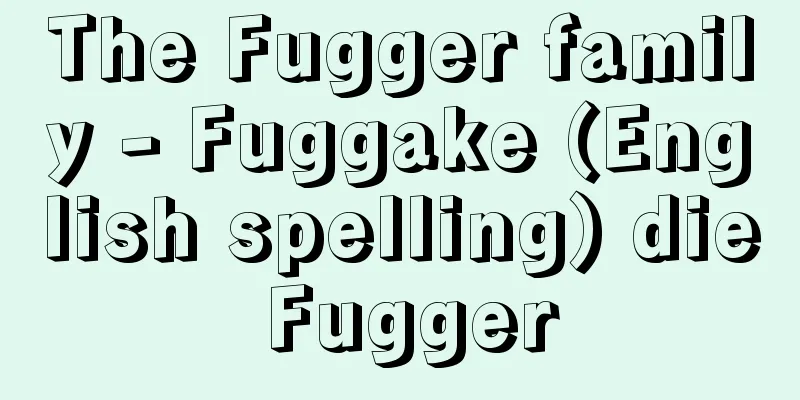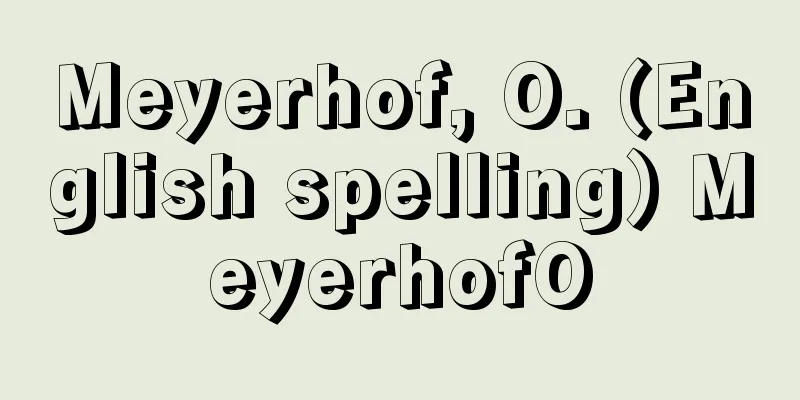The Fugger family - Fuggake (English spelling) die Fugger

|
A wealthy merchant from South Germany during the Reformation. The family prospered greatly during the reign of Jacob II (Jacob the Rich, 1459-1525). In 1367, his grandfather Hans went to Augsburg to join the weavers' guild, and his father Jacob I (1412-69) traded textiles and spices with Venice. Jacob II, the youngest of seven sons and four daughters, entered the Holy See, but returned to secular life and learned commerce in Italy and joined the family business. Since 1485, he had acquired the right of first refusal for silver in exchange for loans to the lords of Tyrol, and made a large profit from selling silver. His relationship with the future emperor Maximilian I also began around this time. In 1494, he leased the Neuzor copper mine from the King of Hungary, and began mining and refining copper with the help of the Krakow engineer Turczo, and expanded the scope of his trade to secure transportation routes. Silver and copper were exports to the East at the time. In 1593, he opened a branch in the emerging international market of Antwerp, and in 1598, he formed a copper sales cartel with fellow merchants in Venice, and in 1505 and 1506, he advanced to Lisbon, investing 4,000 ducats and participating in the East India trade. He expanded his trading network by utilizing his connections with influential people such as the Papal official von Meckau, and as a Papal banker, he undertook the remittance of donations and indulgences from bishops in various regions to Rome. He supported the Habsburgs, and in the 1919 imperial election, he provided 540,000 guilden out of the 850,000 guilden election funds for Charles V (Maximilian's grandson and King of Spain Charles I). In order to recoup the funds, the Tyrol silver mines and the revenues from the Spanish Knights' lands were handed over to Fugger. At that time, there was strong criticism of the monopoly of the great merchants, and in 1823 the Imperial Diet decided to put Fugger on trial, but he sent a letter of interrogation to the Emperor, who halted the trial and guaranteed his transactions. In the Peasants' War, he provided funds and weapons to the feudal lords, but in Hungary, ethnic rebellions led him to decide to abandon the mines, and he died in 1825 at the age of 66, suffering from mental stress. He increased the fortune he inherited from his brother tenfold, and ran an international trading and financial business with over 20 branches and agents and representatives in 60 towns. After 1507, he purchased land, and in 1514 he was made count, but he himself did not use the title and remained a merchant. He supported the arts and sciences, continued to give donations and charity, and built the low-rent housing complex Fuggerei in 1514. During the reign of his nephew Anton (1493-1560), the firm's assets reached their peak, but the firm's debts, which had no guarantee of repayment, increased, and the firm's business was dominated by loans to the Spanish Crown and speculation in Antwerp. As a result, the firm was hit hard by the suspension of payments by the Spanish Crown (1557, 1575, 1607) and the fall of Antwerp (1585), and it withdrew from commerce in the 17th century. The Fugger family continues to exist as landed aristocrats to this day, and many historical documents from Anton's time are kept in the Fugger Library in Dillingen. [Minoru Morota] "Jakob Fugger" by Minoru Morota (included in "The Road to Great Fortune" edited by Tomoo Matsuda, 1955, Chuokoron-Shinsha) " ▽ "Study of Early German Capitalism" by Minoru Morota (1967, Yuhikaku) Source: Shogakukan Encyclopedia Nipponica About Encyclopedia Nipponica Information | Legend |
|
宗教改革時代の南ドイツの豪商。ヤコブ2世Jacob Ⅱ(「富豪ヤコブ」、1459―1525)の代に大いに繁栄した。1367年、彼の祖父ハンスがアウクスブルクへ出て織工ツンフトに加入、父ヤコブ1世Jacob Ⅰ(1412―69)はベネツィアと織物や香料の商業を営む。 七男四女の末子に生まれたヤコブ2世は、聖界に入ったが、還俗(げんぞく)してイタリアで商業を習い家業についた。1485年以来チロールの領主への貸付けの代償に銀の先買権を獲得し、銀の販売で大きな利益をあげた。後の皇帝マクシミリアン1世との関係もこのころから始まった。94年ハンガリー王からノイゾール銅山を賃借し、クラクフの技師トゥルツォーの協力を得て銅の採掘と精錬を始め、輸送路を確保するため取引範囲を拡大した。銀と銅は当時東方への輸出品であった。93年に新興の国際市場アントワープ(アントウェルペン)に支店を開設、98年にはベネチアで同業者と銅の販売カルテルを結び、1505、06年にはリスボンへ進出、4000ドゥカーテンを出資して東インド貿易に参加した。教皇庁の高官フォン・メッカウなど有力者との結び付きを利用して取引網を広げ、教皇庁の銀行家として各地の司教からローマへの献納金や贖宥(しょくゆう)状(免罪符)売上金の送金を引き受けた。ハプスブルク家を援助し、19年の皇帝選挙ではカール5世(マクシミリアンの孫でスペイン王カルロス1世)の選挙資金85万グルデン中54万グルデンを融通した。その回収のためチロール銀山のほかスペインの騎士団領の収益がフッガーに委譲された。このころ大商人の独占に対する非難が激しく、23年帝国議会はフッガーを裁判にかけることを決めたが、彼は皇帝に詰問の手紙を送って裁判の中止と取引の保証を取り付けた。農民戦争では領主側に資金と武器を提供したが、ハンガリーでは民族的反抗にあって鉱山の放棄を決意し、心労のなかで25年66歳で死去した。 彼は、兄から引き継いだ財産を10倍に増やし、20以上の支店、60の町の代理商と駐在員を使って国際的な商業と金融業を営んだ。1507年以後領地を購入し、14年に伯爵に叙せられたが、自らは称号を使わず商人で通した。学芸を保護し、寄付や慈善を続け、14年には低家賃住宅フゲライを建てた。 ついで、彼の甥(おい)のアントンAnton(1493―1560)の代に、資産は最大になったが、返済の保証のない債権が増加し、事業はスペイン王室への貸付けとアントワープでの投機に傾いた。そのためスペイン王室の支払い停止(1557、1575、1607)とアントワープの陥落(1585)で痛手を受け、17世紀には商業から退いた。 フッガー家は、土地貴族として現在まで続いており、アントンの代から集めた多数の史料がディリンゲンのフッガー文庫に収蔵されている。 [諸田 實] 『諸田實著『ヤコプ・フッガー』(松田智雄編『巨富への道』所収・1955・中央公論社)』▽『諸田實著『ドイツ初期資本主義研究』(1967・有斐閣)』 出典 小学館 日本大百科全書(ニッポニカ)日本大百科全書(ニッポニカ)について 情報 | 凡例 |
<<: Cobalt fluoride (Fukakobalto)
>>: Xenon fluoride (Fukka xenon)
Recommend
Erinyes - Erinyes
…the Greek goddess of vengeance. The plural Eriny...
Hemoglobin
Hemoglobin is a pigment protein found in large qu...
First verse - Kaminoku
…While we're at it, let's also note how e...
Onmei Shoho (singing method of note names)
〘noun〙 A method of singing by calling out the name...
"The Year of the Dog Satomi Eight Ripe Plums" - Utterly Doshisha and Mino Yatsufusa
...On the occasion of the Edo premiere, Bakin wro...
Vanitas - Vanitas
… [The meaning of love and the language of love] ...
Cape Irago Lighthouse
A lighthouse located at Cape Irago at the tip of t...
Ibn 'Abd al-Hakam
798-871 Abū al-Qāsim 'Abd al-Raḥmān was an Egy...
Osan
[1] A character in the Joruri play "Shinju Te...
Susono [city] - Susono
A city in northeastern Shizuoka prefecture. It was...
Galicia (English spelling)
A historical region spanning western Ukraine and ...
《Kairokou》
…In the 20th century, American poet EA Robinson a...
Sati (English spelling)
In India, a social custom is when a widow commits ...
Buys-Ballot, CHD (English) BuysBallotCHD
In 1842, he published a paper entitled "On t...
Chanchin - Chanchin
A deciduous tall tree of the Meliaceae family (AP...









